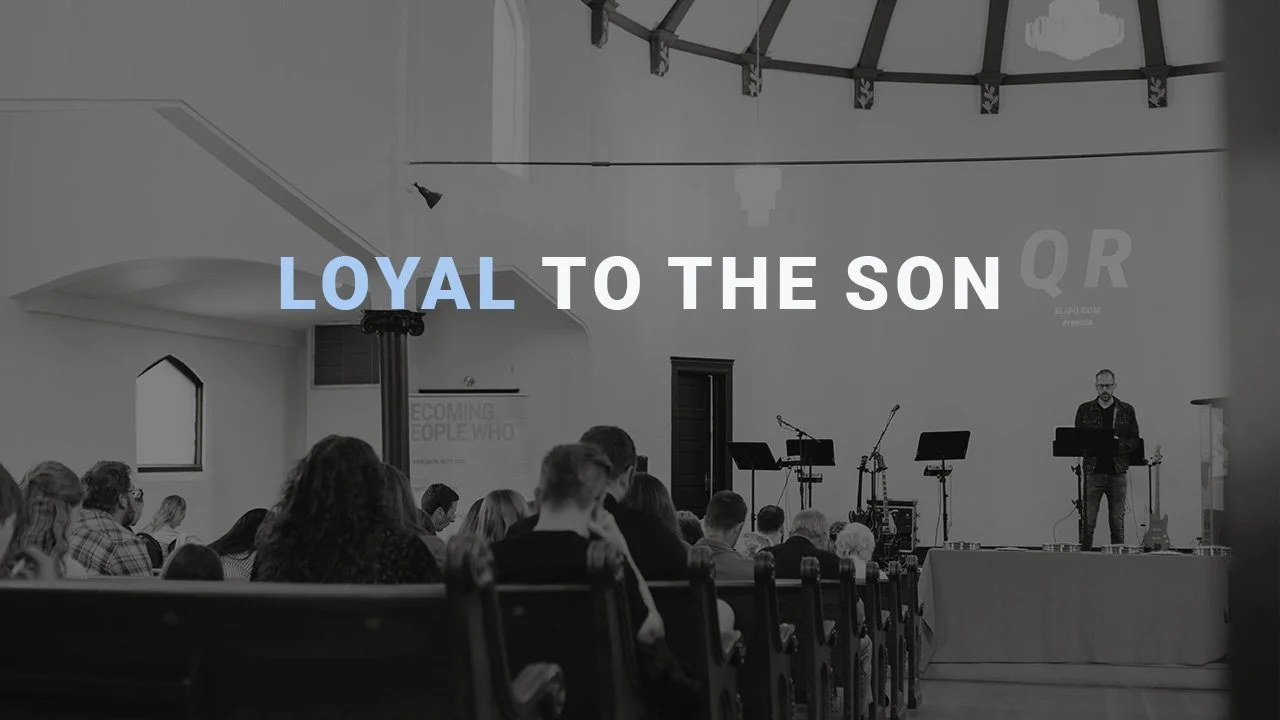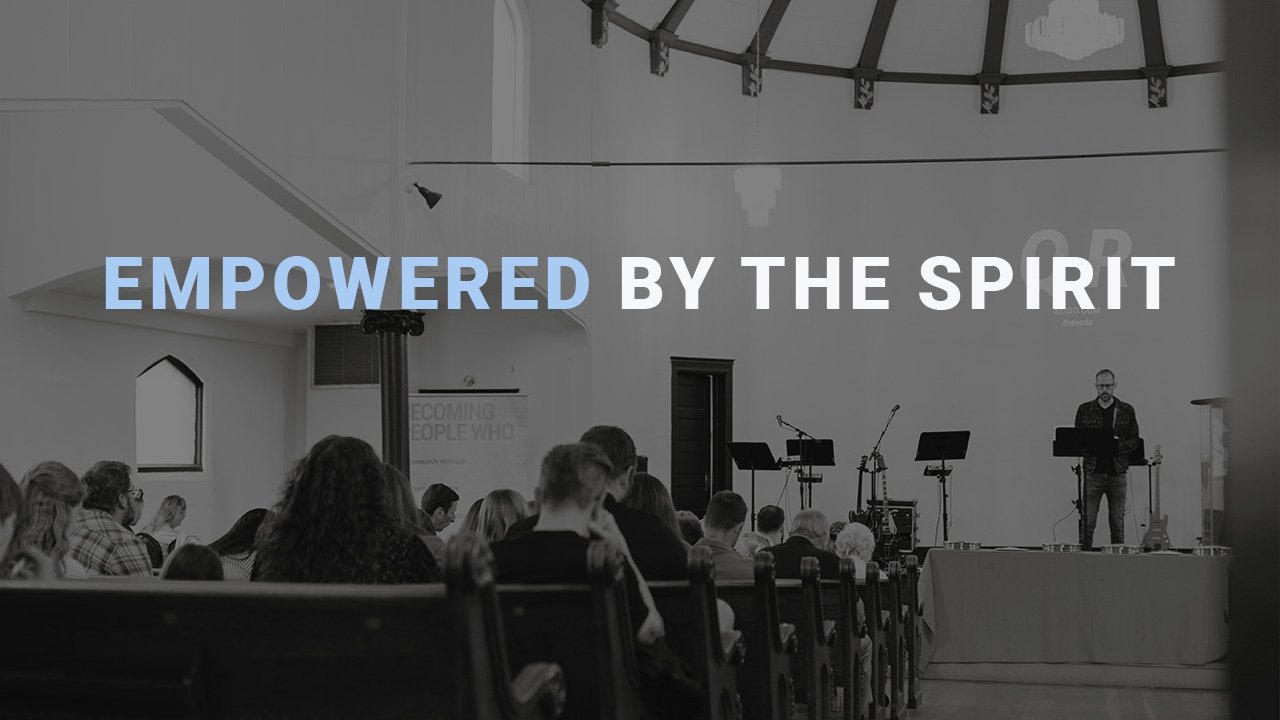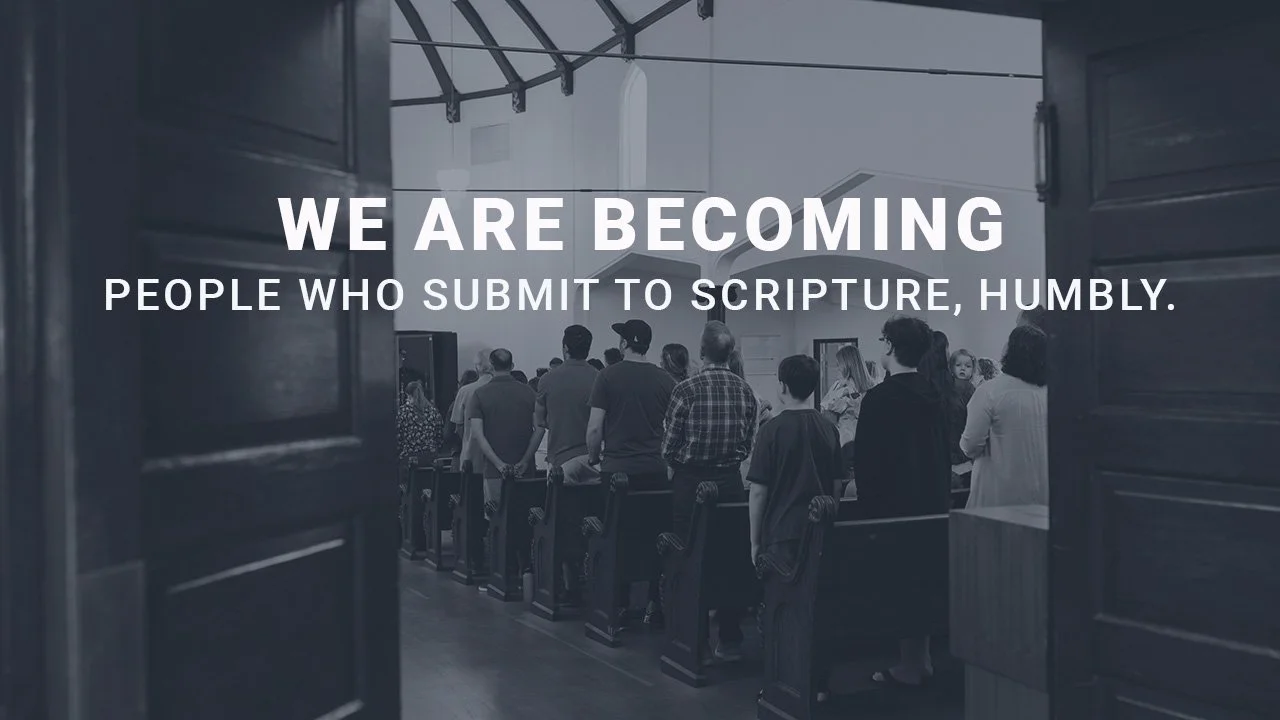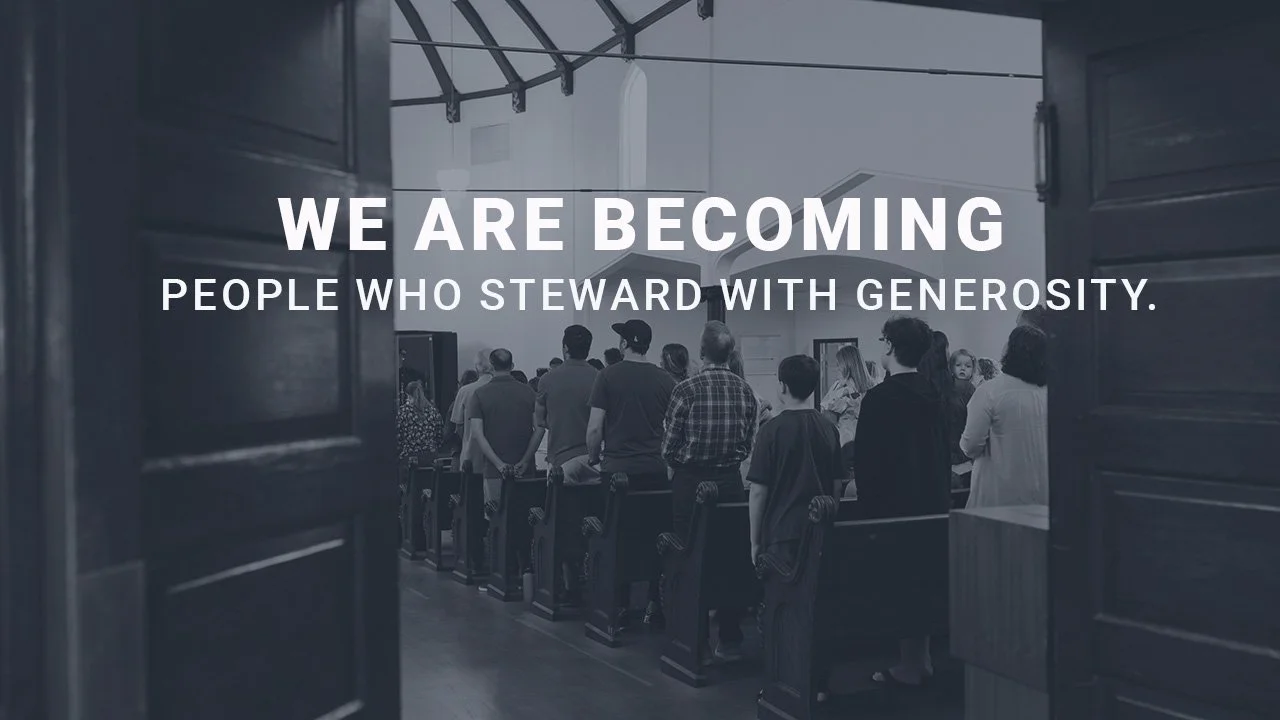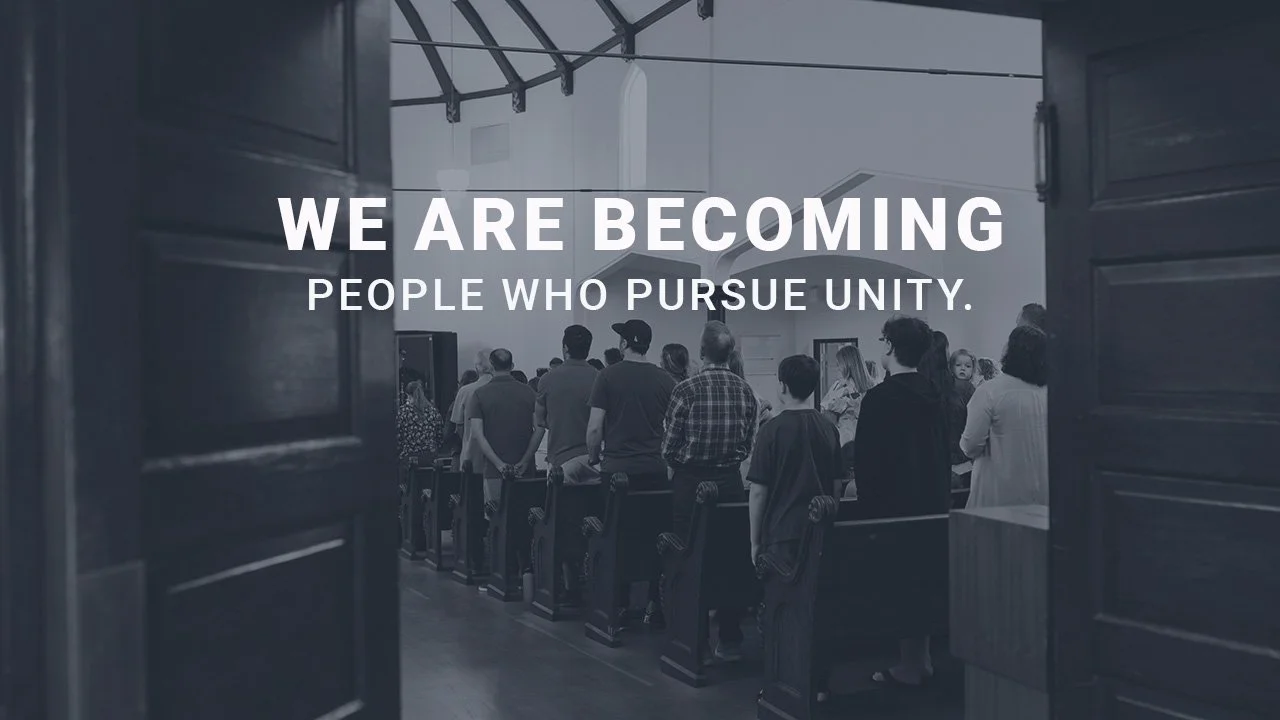
BELIEFS
What a group of people believe about God, themselves, and the world around them, and how those beliefs shape their actions gets to the heart of who they are.
We want to be clear and helpful in our presentation of some of those beliefs and practices. We can’t cover every question though, and if you don’t find what you are looking for here or need some clarity about something in these pages, we’d love to grab a coffee and chat!
"For where the church is there is the Spirit of God, and where the Spirit of God, there is the church and all grace."
-Irenaeus
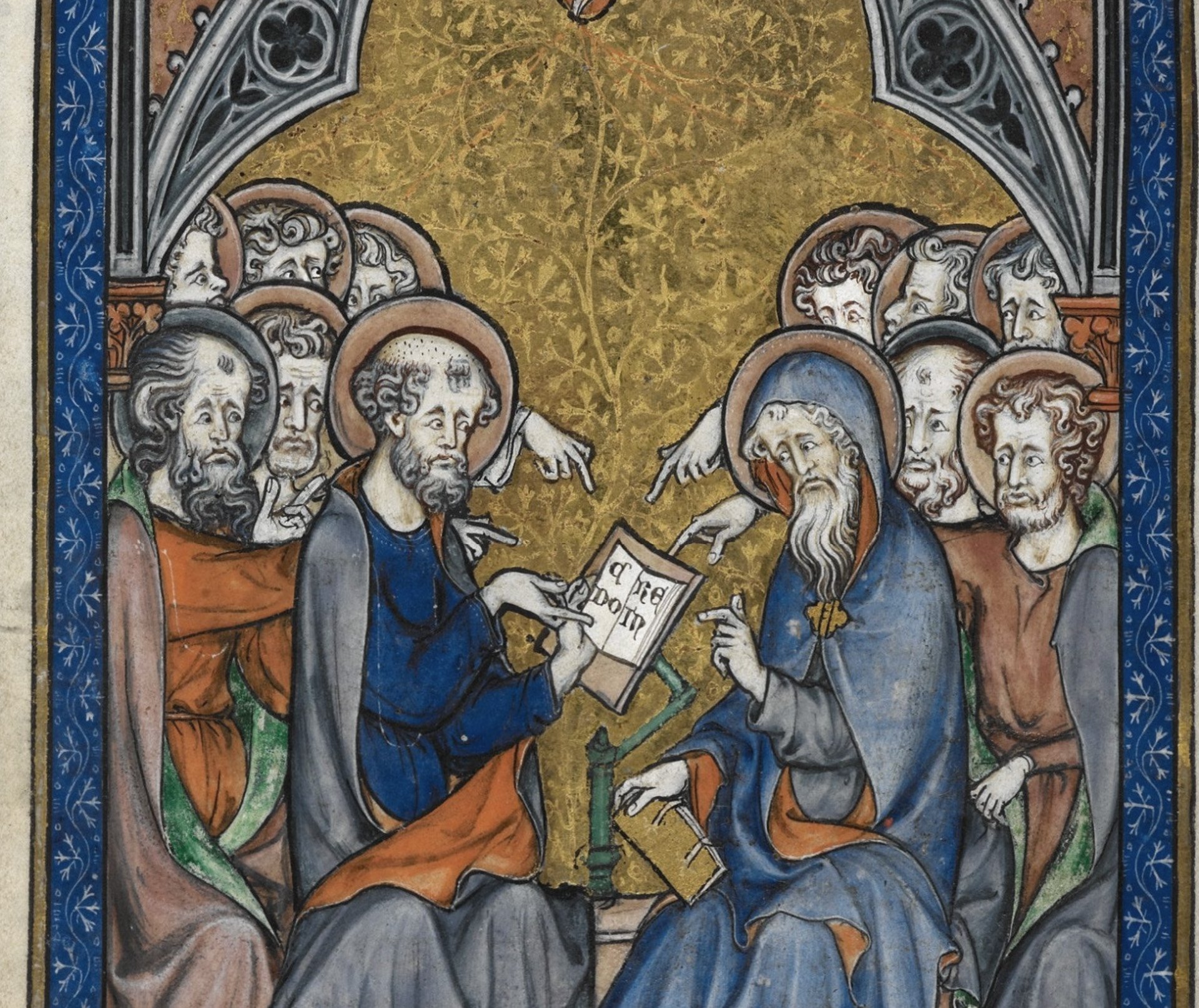
Revelation Church is firmly planted in the stream of historic, orthodox Christianity as a member of the one, holy, catholic and apostolic church. This position is best expressed by our adherence to the statements in the Apostles and Nicene Creeds.
-
The Apostles Creed developed over the early centuries of the Christian church as a way to teach new converts the truths of the scriptures in preparation for baptism:
I believe in God, the Father almighty, creator of heaven and earth.
I believe in Jesus Christ, his only Son, our Lord, who was conceived by the power of the Holy Spirit and born of the Virgin Mary. He suffered under Pontius Pilate, was crucified, died, and was buried. He descended to the dead. On the third day he rose again. He ascended into heaven, and is seated at the right hand of the Father. He will come again to judge the living and the dead.
I believe in the Holy Spirit, the holy catholic Church, the communion of saints, the forgiveness of sins, the resurrection of the body, and the life everlasting. Amen.
-
The Council of Nicea in 325 was convened primarily to bring clarity to the church’s understanding of the person of Jesus Christ. The doctrinal statement that was authored at that council and expanded in Constantinople in 381 presents the doctrines that are central to our identity as Christians:
We believe in one God the Father Almighty, maker of heaven and earth and of all things visible and invisible.
And in one Lord Jesus Christ, the only-begotten son of God: the one begotten from the Father before all the ages, light of light, true God of true God, begotten not made, being of one substance with the Father, through whom all things came into being, who for us and for our salvation came down from heaven and became flesh by the Holy Spirit and the virgin Mary, and became man and was crucified for us under Pontius Pilate; he suffered and was buried, and on the third day he rose again in accordance with the Scriptures and ascended into heaven and sits at the right hand of the Father; and he will come again with glory to judge the living and the dead, whose kingdom will have no end.
And in the Holy Spirit, the Lord and life-giver, the one who proceeds from the Father and the Son, who with the Father and the Son together is worshiped and glorified, who spoke through the prophets.
In one holy, catholic, and apostolic church: we confess one baptism for the forgiveness of sins; we expect the resurrection of the dead and the life of the age to come. Amen.

GOD IS NOT HIDDEN
Christianity is a revealed faith. Understanding that God is the one who moves into our lives is of primary importance. It’s so important we named our church after it.
-
DescriptioIn the book of Acts, the Apostle Paul meets a group of philosophers in Athens. He doesn’t present them with the Jewish scriptures, but instead quotes their own poets to them and argues that their intuitions about God are actually ways that God is seeking them out and revealing himself to them.
“The God who made the world and everything in it—he is Lord of heaven and earth—does not live in shrines made by hands. Neither is he served by human hands, as though he needed anything, since he himself gives everyone life and breath and all things. From one man he has made every nationality to live over the whole earth and has determined their appointed times and the boundaries of where they live. He did this so that they might seek God, and perhaps they might reach out and find him, though he is not far from each one of us. For in him we live and move and have our being, as even some of your own poets have said, ‘For we are also his offspring.’ Since, then, we are God’s offspring, we shouldn’t think that the divine nature is like gold or silver or stone, an image fashioned by human art and imagination.
"Therefore, having overlooked the times of ignorance, God now commands all people everywhere to repent, because he has set a day when he is going to judge the world in righteousness by the man he has appointed. He has provided proof of this to everyone by raising him from the dead.”
Paul’s argument is that these pagan philosophers and poets, who have spent hundreds of years trying to ponder what God might be like without any direct knowledge of him through the scriptures, are keying in to things that are true about God because God is in pursuit of the human heart.
That pursuit culminates in Jesus, the God-man who came to purchase humanity back to God from sin and death by dying and rising from the dead.
Now, most of the Athenians don’t buy the argument, but it’s a good example of Paul’s understanding of God’s goodness and grace towards sinful people and it’s an understanding so fundamental to our faith that we named our church after it.
God reveals himself. God makes a move in the lives of all people everywhere. He draws all people to himself.
In big ways and small ways, through our own hearts and other people, through the pursuit of knowledge and in nature, but ultimately, finally, through Jesus.
In fact we all seek ultimate meaning in life because that desire has been placed inside of us. C.S. Lewis wrote that “Creatures are not born with desires unless satisfaction for those desires exists. A baby feels hunger: well, there is such a thing as food. A duckling wants to swim: well, there is such a thing as water…If I find in myself a desire which no experience in this world can satisfy…that does not prove that the universe is a fraud. Probably earthly pleasures were never meant to satisfy it, but only to arouse it, to suggest the real thing.”
My lack of satisfaction in my life is meant to be met by God himself. St. Augustine confessed this 1600 years ago: “In yourself you rouse us, giving us delight in glorifying you, because you made us with yourself as our goal, and our heart is restless until it rests in you.”
All of the identities that I take on, all of the circumstances that I experience, all of the relationships that I participate in, all point to God’s pursuit of restoration: for my life and ultimately for all of creation, because “in him we live and move and have our being.” He is everywhere, all the time, calling us to come home.
This truth is foundational for us. From it springs our mission, our hope, and our posture in the world. Everything that matters about the way we understand and interact with the world stems from this one idea:
God is not hidden.
WE ARE…
As Christians, there are some things that are true about us. These things should shape the way we see God, ourselves, other people, and the world around us. They are true about us in Christ no matter what.
WE ARE ADOPTED BY THE FATHER
-
There are three realities about our identity as Christians that we believe are of utmost importance. And the first one is this: We have been adopted by the Father.
While all children are a blessing, if we’re being honest, sometimes children are an accident. We all know where they come from, but they’re not always planned.
Adoption is different. No one accidentally finds themselves adopting. It’s usually a long, difficult process, taken on by a couple intent on becoming parents.
Theologically speaking, God only has one Son. Jesus, the only begotten Son, eternally existent and uncreated alongside of the Father and the Holy Spirit, is God by nature. But when scripture speaks of God’s other children, it says that we are related to him by adoption.
“When the time came to completion, God sent his Son, born of a woman, born under the law, to redeem those under the law, so that we might receive adoption as sons. And because you are sons, God sent the Spirit of his Son into our hearts, crying, “Abba, Father!” So you are no longer a slave but a son, and if a son, then God has made you an heir.”
The work of Jesus on the cross and in his resurrection does the work of grafting us into God’s household as adopted children. We aren’t servants or slaves, we’re members of the family. And membership in the family comes with an inheritance.
“The Spirit himself testifies together with our spirit that we are God’s children, and if children, also heirs—heirs of God and coheirs with Christ—”
The truth is, we get what Jesus gets – and Jesus gets everything. The riches that God has laid up for his children are incomprehensible.
In addition to that, our new family in Christ is made up of many siblings. Joseph Hellerman writes: “Paul's point is not simply that God is now my Father and I am now His son. God, in Jesus' great work of redemption, was not establishing a series of isolated personal relationships with His individual followers. He was creating a family of sons and daughters—siblings—who are now ‘all one in Christ Jesus’. The saving work of Christ therefore has a corporate, as well as an individual, dimension. For Paul, the church is a family.”
Here's something important: this is true about you if you are in Christ. You’re not working toward it, you’re not on probation. Right now today, if you are a Christian, if you have given your life over to Christ, you are a son or daughter of the king of the universe. And you are deeply loved.
I know some of you find it hard to believe that. Maybe you’ve heard it over and over. You can make it make sense for other people, but for you, it just doesn’t sound true. But it is. This is not an aspirational value, this is a fact, Christian.
In the words of Neil Anderson – “You are accepted. You are secure. You are significant.”
It may not feel like it. It may not look it. You may have a dozen reasons why you don’t live up to the family name. But that’s the thing – If you are in Christ, you are being invited and empowered to become more and more like your heavenly Father every day, so that as you grow, because of God’s Spirit in you, the family resemblance will start to come out.
If you are a Christian, this is true about you: you have been adopted by the Father.
WE ARE LOYAL TO THE SON
-
Loyal to the Son. This is the 2nd reality that we believe to be true about us as Christians.
Christians talk a lot about faith. Faith is an important part of what it means to follow Jesus, but it’s a word that we have stripped of a lot of meaning over the years. We usually think of faith as an internal, mental belief in something that you cannot prove. The problem is that faith isn’t really that at all.
New Testament Greek scholar Teresa Morgan says that “[Faith is] first and foremost, neither a body of beliefs nor a function of the heart or mind, but a relationship which creates community.”
In the language of the New Testament, the word is “pistis.” It can mean a lot of different things, just like any other word, but most of the time in the ancient Greek world, it meant loyalty. Nijay Gupta points out that “of the more than a thousand appearances of pistis in the Greek literature of antiquity, the vast majority of these are in political or conflict oriented histories and the obvious connotations involve allegiance or pledges of loyalty.”
When we read about faith in our Bibles, we need to understand it not just as “this is what I believe” but also “this is who I’m loyal to.”
And who are we loyal to? Jesus, our Lord and King.
You may be thinking, “this sounds a lot like works. I thought we were saved by grace?”
Do we have to do something to earn our place in God’s family? No, of course not. The one who earns our place in God’s family is Jesus. He pays the price for our lives.
But faith – that thing we are saved through according to Paul – is not just something we keep in our heads – it’s the outworking of how we live our lives.
Paul exhorts the Philippians: “Just one thing: As citizens of heaven, live your life worthy of the gospel of Christ….”
We are citizens of heaven, and citizens are loyal to their place of citizenship. That loyalty is expressed in action – that’s why businesses are proud that they use American-made parts in their products. It’s a sign of their loyalty to the United States. As Christians, our ultimate loyalty is to Christ and his kingdom. What does that display of loyalty look like? Listen to how Paul explains it to the Philippians:
“If, then, there is any encouragement in Christ, if any consolation of love, if any fellowship with the Spirit, if any affection and mercy, make my joy complete by thinking the same way, having the same love, united in spirit, intent on one purpose. Do nothing out of selfish ambition or conceit, but in humility consider others as more important than yourselves. Everyone should look not to his own interests, but rather to the interests of others.”
Loyalty to Christ looks like acting like Christ and giving priority to others. Laying down our rights and privileges in order to serve. Paul goes on:
“Adopt the same attitude as that of Christ Jesus, who, existing in the form of God, did not consider equality with God as something to be exploited.
Instead he emptied himself by assuming the form of a servant, taking on the likeness of humanity.
And when he had come as a man, he humbled himself by becoming obedient to the point of death— even to death on a cross.
For this reason God highly exalted him and gave him the name that is above every name, so that at the name of Jesus every knee will bow— in heaven and on earth and under the earth— and every tongue will confess that Jesus Christ is Lord, to the glory of God the Father.
Jesus’ example of service and humility all the way to the point of a terrible death for the sake of others is the thing that exalts him to the highest place in heaven and displays how worthy he is to have our loyalty.
Our loyal action is not what makes us – or keeps us – Christians. But it is true that Christians are loyal to Christ. Old Testament Scholar Mike Heiser said “People who really understand the gospel are going to try to imitate Christ because they want to honor him. We don't do works so that we can add our own merits to the gospel. What you do isn't going to change God's disposition toward you in any way, because your salvation from the get-go was not based on you earning God's favor in any way. It's never based on how well you perform.”
Loyalty isn’t about getting things right all the time. We are constantly stumbling, failing to live up to Jesus’ example. It’s about remaining faithful to the one that bought you.
If you are a Christian, this is true about you: you are loyal to the Son.
WE ARE EMPOWERED BY THE SPIRIT
-
Christians are empowered by the Holy Spirit. For most of us, If you’ve ever been in a work environment during a power outage, you’ve probably just taken the rest of the day off. Lights, computers, printers, cash registers, the internet – no power means nothing gets done.
When Jesus rose from the dead and ascended back to his Father, he had secured our adoption as God’s children. He had called us into faith or loyalty to him as the King, but then he said something strange. To the group of people whose lives had been changed by his ministry and mission, he gave very clear instructions: don’t do anything. Just wait.
Wait for what? For power. From the 3rd person of the Godhead: The Holy Spirit. They didn’t have to wait long. Just a few days later, during a Jewish feast called Pentecost, the Holy Spirit filled the bodies of all of the believers and He continues to do so today. Paul tells us that the Holy Spirit inside of us proves that we belong to God:
“Now it is God who strengthens us together with you in Christ, and who has anointed us. He has also put his seal on us and given us the Spirit in our hearts as a down payment.”
God’s Spirit inside of us is a reality but whether we make use of His power is a choice. We are told by the Apostle Paul not to stifle the Spirit or grieve the Spirit. We are to make choices that allow us to be filled with the Spirit and we are called to act in ways that sow to the Spirit.
The reality is, the power of God’s Holy Spirit isn’t the only power that we can operate from. We can live out of our selfish desires, our “flesh,” we can even be lured away to the power of deceitful spirits and the teaching of demons. We need to be careful that the power we are experiencing is coming from God and not from somewhere else.
One of the ways we can tell if our lives are being powered by the Spirit is the growth of His fruit: Love, joy, peace, patience, kindness, goodness, faithfulness, gentleness, and self-control. These virtues will become more and more evident in your life as you give yourself to the Spirit’s power. We are called to spiritual practice: reading and meditating on the scriptures, prayer, fasting, silence, solitude, community worship, and other disciplines that are designed to cultivate this fruit and prune away the parts of us that get in the way of it’s growth.
If you’re a Christian, the Spirit will make sure this happens in your life. It might happen more slowly than you’d like, but it will happen. Additionally, the scriptures tell us that the Spirit gives us gifts. These gifts are supernatural abilities that are designed for building up the rest of the church. Some of the gifts appear fantastic to us, like prophecy or healing, and others seem less so, like teaching, giving, or mercy, but they all come from a supernatural source: God’s Holy Spirit.
All Christians are given at least one of these gifts. This is one of many good reasons to be a member of a local church: God has given you gifts for them and he has given them gifts for you – you need them and they need you!
The Holy Spirit lives inside of every Christian, and His power produces supernatural fruit and gives supernatural gifts. This is a reality that we are called to grow more deeply into and Jesus encourages us to ask for more from the Holy Spirit as we grow.
If you’re a Christian, this is true about you: you are empowered by the Holy Spirit.
WE ARE BECOMING…
While there are some things that are true about us in Christ, there are other things that his empowering Spirit is growing in us as we mature as Christians. These mindsets, attitudes, and practices are part of our never-ending journey towards Christlikeness.
PEOPLE WHO LIVE IN COMMUNION WITH GOD
-
When we are brought into the community of God’s people, the church, we are adopted by the Father, we have given our allegiance to the Son, and we are empowered by the Holy Spirit. Those things are true about us. But there are other areas of our lives that immediately become “a work in progress.”
One of those areas is our communion with God.
Jesus tells us that we are connected to him like branches to a vine. But he also encourages us to remain connected! Jesus’ brother James tells us to draw near to God. But if God is everywhere, what does that even mean?
Because we are children of God, giving our allegiance to Jesus, and being empowered by the Holy Spirit, we are invited to lean in to the different ways that we can grow in our awareness of our connection to God. Pastor Jon Thompson calls these things “guaranteed places of encounter.”
We can become aware of our connection to God through the Gospel itself. The Apostle Paul calls it the power of God.
We can become aware of our connection to God through the Scriptures, read privately and in public worship. Speaking of public worship, the gathering of God’s people is a place that God promises to inhabit in a special way: through preaching, song, the gifts of the body, and in the sacraments of baptism and communion.
No one really likes this one, but we can become more aware of our connection to God when we suffer. Paul longs to know Christ in the “fellowship of his sufferings.”
Additionally, Jesus says that he is to be found in those who are marginalized and in need. Whenever we reach out to love and serve others, we are really serving Him.
We are connected to God when we become Christians, but for the rest of our lives we will have the opportunity to grow into people who experience an awareness of that communion more and more deeply.
PEOPLE WHO SUBMIT TO SCRIPTURE, HUMBLY
-
When we are brought into the community of God’s people, the church, we are adopted by the Father, we have given our allegiance to the Son, and we are empowered by the Holy Spirit. Those things are true about us. But there are other areas of our lives that immediately become “a work in progress.”
One of those areas is our humble submission to scripture.
Christians have historically been called “people of the book.” This is because our faith flows out of what we find in the Hebrew Scriptures, or Old Testament, and the New Testament, the writings of the earliest followers of Jesus.
The scriptures are called God’s word. The Apostle Paul says they are “breathed out” by God himself through the work of the human authors. This makes them authoritative over our lives. We are bound by the truths they contain and are called to saturate our lives with them.
Sometimes though this is more of an aspiration than a reality. If you’ve ever met someone who “loves the rain,” what they probably mean is that they love the sound it makes on their roof, or the smell it leaves when it’s done. They probably don’t mean “I love standing out in the rain and getting soaking wet.”
We can treat the scriptures the same way. We can be a fan of the Bible without actually getting in to the Bible and letting it pour over us.
In our individualistic culture we also tend to engage with the scriptures all by ourselves. The Bible isn’t designed to be encountered alone though. It’s meant to be read, studied, and understood in community. We are the current generation of a long line of men and women who have been shaped by the scriptures in Christian community.
This means that we aren’t just indebted to other members of our current community to help us live out the scriptures, but also to the generations that have gone before us and our brothers and sisters throughout the world.
Realizing that we are not the first to find ourselves placed under the authority of the scriptures should foster humility in our hearts. James tells us to humbly receive the implanted word.
When our interpretation of a particular scripture is in conflict with other Christians, we need to be careful. Paul warns the Corinthians that their knowledge had made them proud. Our place in God’s story, side by side with generations of faithful followers of Jesus requires us to remember that we don’t have all the answers.
There is truth, there is error, and there are guardrails. This is why we center ourselves every week in our gatherings on the Nicene Creed. But there are many areas of doctrine and practice that we have room to grow in and if we aren’t loving each other in the midst of our differences, we are misrepresenting the heart of God.
We are tasked with learning and growing into the truth of the scriptures as Christians, and in humility we need to understand that the process is a messy work of lifelong community with God’s people.
PEOPLE WHO WALK IN HONESTY & AUTHENTICITY
-
When we are brought into the community of God’s people, the church, we are adopted by the Father, we have given our allegiance to the Son, and we are empowered by the Holy Spirit. Those things are true about us. But there are other areas of our lives that immediately become “a work in progress.”
One of those areas is our being honest & authentic to God, ourselves, and others.
The Apostle John tells us that God is light and there is absolutely no darkness in him. We, on the other hand, are a mixed bag of truth and error, light and darkness, hope and despair, righteousness and sin.
John continues in his 1st letter by saying “If we say, “We have fellowship with him,” and yet we walk in darkness, we are lying and are not practicing the truth.”
You see, knowing the Bible and practicing the truth are different things. To truly step into the light of the knowledge of God, we need to begin to trust God with our darkness.
The good news is that when Jesus finds you in brokenness and sin he doesn’t run from you – he runs to you. We can bring our mess to God because we can trust him.
This process begins with bringing our mess to God, but it doesn’t stop there. John continues by telling us that “If we walk in the light as he himself is in the light, we have fellowship with one another, and the blood of Jesus his Son cleanses us from all sin.”
Our honesty before God begins to expand to honesty and authenticity toward others. We bring our darkness into the light in the community of faith – and this is what breaks the power of sin.
Our desire is to create a community of people that trust so deeply in who God is and what he has done for us that we can stand in front of one another with all of our broken pieces and know that we are loved and accepted for who we are – not just for the masks we put on to fit in.
How do we do this? We encourage appropriate spaces to grow deep relationships and provide opportunities to confess sin to one another. We deal with sins committed by us and against us with the same seriousness and we refuse to let the darkness of secret sin hold us captive.
To be people that walk in honesty & authenticity, we need to be committed to glorifying Jesus, being safe people to walk in the light with and growing in empathy with those that struggle, knowing we are just as prone to wander.
PEOPLE WHO STEWARD WITH GENEROSITY
-
When we are brought into the community of God’s people, the church, we are adopted by the Father, we have given our allegiance to the Son, and we are empowered by the Holy Spirit. Those things are true about us. But there are other areas of our lives that immediately become “a work in progress.”
One of those areas is generosity in the stewardship of our resources.
Here’s the big idea: God doesn’t need your stuff. He’s doing fine without you. If you’ve ever invited a child to help you paint a bedroom, you can relate to God here. Give them a brush, let them have some fun on one section, but know they aren’t really helping and you’ll probably need to paint over it anyway. You’re just happy to spend time with your child.
God doesn’t need you, but at the same time he’s given you gifts. Physical ones, emotional ones. Materials and skills. Relationships and supernatural spiritual gifts. These are all things that we are called to steward – to take care of. And in God’s economy, we are called to steward them with generosity.
We are generous people when we realize that there will always be enough. God has unlimited resources, and he is our good Father. Whether it’s money, or time, or stuff, or skills, God has more on tap than you could possibly give away.
That doesn’t seem practical, but that’s the world that Jesus lived in. He tells us to “seek his kingdom, and these things will be provided for you. Don’t be afraid, little flock, because your Father delights to give you the kingdom. Sell your possessions and give to the poor. Make money-bags for yourselves that won’t grow old, an inexhaustible treasure in heaven, where no thief comes near and no moth destroys. For where your treasure is, there your heart will be also.”
The scriptures paint a picture of a world that is blessed with abundance because it is ruled by a loving creator that has both an endless supply of resources and a desire to meet our needs.
Jesus isn’t a fool though. He recognizes at one point that he has no play to lay his head. No bed for the night, let alone the home ownership of the American dream. He is aware of the scarcity of life in a broken world. But the place where his heart is centered, where he calls us to live, is in a world marked by the abundance of a loving father.
We can choose to let the world out there shape our understand of God’s generosity, or we can let the testimony of God himself shape our understanding of the world. We can choose to live our lives oriented around protecting ourselves from the curse, or we can choose to live our lives receptive to the blessing.
We pray “Give us this day our daily bread” and trust that our Father will answer that prayer. We practice the disciplines of giving, fasting, living with simplicity, and sabbath in order to cultivate a heart that trusts in the reality that our Father delights to give us the Kingdom.
As we grow in our trust of God’s unchanging character and immeasurable love for us, we can relax into a posture of stewarding our resources with generosity.
PEOPLE WHO PURSUE UNITY
-
When we are brought into the community of God’s people, the church, we are adopted by the Father, we have given our allegiance to the Son, and we are empowered by the Holy Spirit. Those things are true about us. But there are other areas of our lives that immediately become “a work in progress.”
One of those areas is the pursuit of unity.
When we look around at the Christian church, unity is not a word that comes to mind. We are separated by historical schisms, selfish splits, ethnic division, and doctrinal fights. Overall it doesn’t seem like we’ve done a good job with this one.
But unity is really important to Jesus. He prays for us in John 17 that we would be one just like he and his Father are one. But unity is hard. Sinful people tend to get in the way. That’s why Paul commands us to “make every effort to keep the unity of the Spirit through the bond of peace.” We have work to do. And unity always costs us something.
As we pursue unity we do our best not to put up a lot of fences. We want to clear about what is primary, but leave room for disagreement around second and third order issues. We want to invite others into membership and be careful not to refuse into our community those that Jesus accepts into his.
We work as often as we are able with other churches in our city to serve the poor, preach the gospel, and build up the body of Christ. We are a work in progress, and a united church is a long way off, but if it matters so much to Jesus, it’s worth spending our own effort to pursue the unity that Jesus prayed for.
PEOPLE WHO CELEBRATE GOODNESS & BEAUTY
-
When we are brought into the community of God’s people, the church, we are adopted by the Father, we have given our allegiance to the Son, and we are empowered by the Holy Spirit. Those things are true about us. But there are other areas of our lives that immediately become “a work in progress.”
One of those areas is the celebration of goodness & beauty.
God is the author of goodness and beauty. They flow from his very life. It is because of this that they matter – they work in the world to draw attention to their creator.
Human beings are made in his image – able to create good and beautiful things like our maker. The choices we make when it comes to the good and the beautiful shape us in ways that might be imperceptible in the moment, but over time will transform our souls into something that they weren’t before.
Paul encourages the Philippians to dwell on things that are “true, honorable, just, pure, lovely, commendable, with more excellence and praiseworthy.” Why? In the context of the passage, as a method of bringing peace where there is conflict. Good and beautiful things tend to go a long way to heal divides and mend broken relationships.
Tim Keller counsels us that the things we daydream about in our spare time are the things that have captured our imaginations. These objects, ideas, and values shape our hearts.
Because of this we desire to grow in the practice of forming our souls around the good and the beautiful. We give space in our gatherings for good music, we allocate time in the church calendar for the visual arts, we celebrate creativity that points to the goodness of our creator whenever we see it.
The things we do with our time, our energy, where we focus our minds: they matter. The way we interact with the world shapes us. This is God’s work of transformation in our lives – and we can either work with him or against him. In our journey to become like Jesus, we can’t just reject the bad: we must choose the good.
As Christians we want to be people that dwell on good and beautiful things, make good and beautiful things, and supports others in their work to create the good and the beautiful because those are the tools that God has given us to assist us in our process of turning away from sin and turning towards Christ.
Revelation Church By-Laws
Revelation Church is an independently governed, autonomous body of Christians organized in the Baptist tradition of church government. Our mode of government, membership process, and organizational doctrinal statement are contained in our bylaws. They can be downloaded and read here.
Membership
An aspect of the way we express ourselves as part of the body of Christ is through formal membership. Members of Revelation Church are part of a covenant community of dependency, responsibility, and accountability with and to one another. You can read our Membership Covenant here.
Church Venture Northwest
Revelation Church is in voluntary, covenant community with the churches of Church Venture NW. Holding in common our doctrine, polity, and philosophy of ministry, we agree to a relationship expressed in dependence upon, responsibility for, and accountability to each other by God’s grace. You can read the Church Venture NW identity document here.




